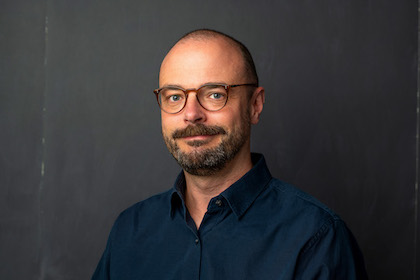I'm an Associate Professor at the Department of Science & Technology Studies at Cornell University, where I also direct the Digital Due Process Clinic. I study how people use technologies to solve social problems—and what this means for everybody else.
Pronouns: he/him | Pronunciation: ['mull-teh 'zee-wits] | Bio: long, short, shortest | CV
Current research
My work is ethnographic in orientation and occasionally uses unconventional designs and methods. I pay close attention to how computational technologies are established, undermined, maintained, and challenged on a daily basis, including:
- the parasitic politics of search engine optimization (SEO) between compliance and resistance,
- the credit repair practices of low-income people in Upstate New York,
- the promises and limitations of parody in sociology,
- the redefinition of due process in a data-driven world,
- new forms of algorithmic regulation.
Related projects: Shady Subjects workshop, Digital Due Process Clinic, How's My Feedback?
Keywords: social, organizational, and ethical aspects of data-driven technologies; audit cultures, esp. scoring, rating, ranking schemes; new forms of governance and regulation; politics of provocation; science & technology studies; ethnomethodology; ethnography
Writing
- Ziewitz M. (2024). On STS and Valuation. In: Krüger A. K., Peetz T. and H. Schäfer (eds): The Routledge International Handbook of Valuation and Society. Abingdon; New York, NY: Routledge: 43–53.
- Aidinoff M, Boczkowski P, Cameron L, Kapila K, Kelly A, Krupar S, Llamas-Rodriguez J,Nakamura L, Nelson A, Nieborg D, Sandvig C, Ticona J, Weigel M, Wohl H, and Ziewitz, M (2024). Five Theses on the Gravity of Platforms, School of Social Science, Institute for Advanced Study.
- Ziewitz, M. and R. Singh (2021). Critical Companionship: Some Sensibilities for Studying with Data Subjects. Big Data & Society 8(2): 20539517211061122.
- Ziewitz M. (2019). Rethinking gaming: The ethical work of optimization in web search engines. Social Studies of Science 49(5): 707–731.
- Ziewitz M. (2017). A not quite random walk: Experimenting with the ethnomethods of the algorithm. Big Data & Society 4(2): 1–13.
- Ziewitz M (2017). Experience in Action: Moderating Care in Web-based Patient Feedback. Social Science & Medicine 175, 99–108.
- Ziewitz M (2016). Governing Algorithms: Myth, Mess, and Methods. Science, Technology & Human Values 41(1): 3–16.
Full list of publications: Google Scholar, Semantic Scholar.
Teaching
- Governing Everyday Life (STS 2761 / SOC 2760)
- Computing Cultures (STS 3561 / INFO 3561 / VISST 3560 / COMM 3560 / ANTH 3061)
- Digital Due Process Clinic (STS 4040)
- Evaluation & Society (STS 4561 / SOC 4560 / INFO 4561)
- Technologies of Valuation (STS 6561 / INFO 6561)
- Introduction to Science & Technology Studies (STS 7111)
Other formats: The STS Talk-Walks: A Monthly Walking Seminar, Game Design Workshop, Data Science & Society Lab
Prospective Ph.D. students and postdocs
I'm always looking for Ph.D. students interested in using interpretive methodologies to explore analytic puzzles at the intersection of science, technology, and society. In particular, I'm interested in work that approaches seemingly "big" issues through careful empirical studies of everyday life. For example, rather than starting with “the social, legal, and ethical implications of AI in the workplace,” think about where these things routinely happen and can usefully be studied: NASCAR racing teams, vending machines, multilevel marketing schemes, credit repair cooperatives, and so on.
If you email me, include (a) a short description of the phenomenon and puzzle you would like to study, (b) a paragraph on why you think that STS would be the best home for such a project, and (c) a CV or résumé. Note that most work we do is empirically grounded (ethnographic, interpretive, qualitative, archival, etc.).
If you are applying for your own postdoctoral fellowship and want to explore collaborations, please explain the connection you see between your work and mine in your email. Include a project proposal and your CV. Please know that I do not currently have funding to support postdoctoral scholars and will only be able to respond to personalized inquiries.
Conflict of interest disclosure
No corporate activity involving employment, consulting, and funding in the last ten years.
As an ethnographer of search marketing professionals, I regularly attended industry conferences, trainings, and events. It was not uncommon for attendees generally to be given a T-shirt, promotional bag, or other token. I accepted these as empirical materials for my study and did not let them influence my research. I never accepted travel coverage although it was occasionally offered.
Attendance at industry conferences and trainings can cost hundreds or even thousands of dollars. Such costs are prohibitive for researchers, so I did apply for reduced fees or non-profit rates on a number of occasions. Specifically, I received significant discounts at brightonSEO 2024, brightonSEO San Diego 2025, and PubCon 2024.
